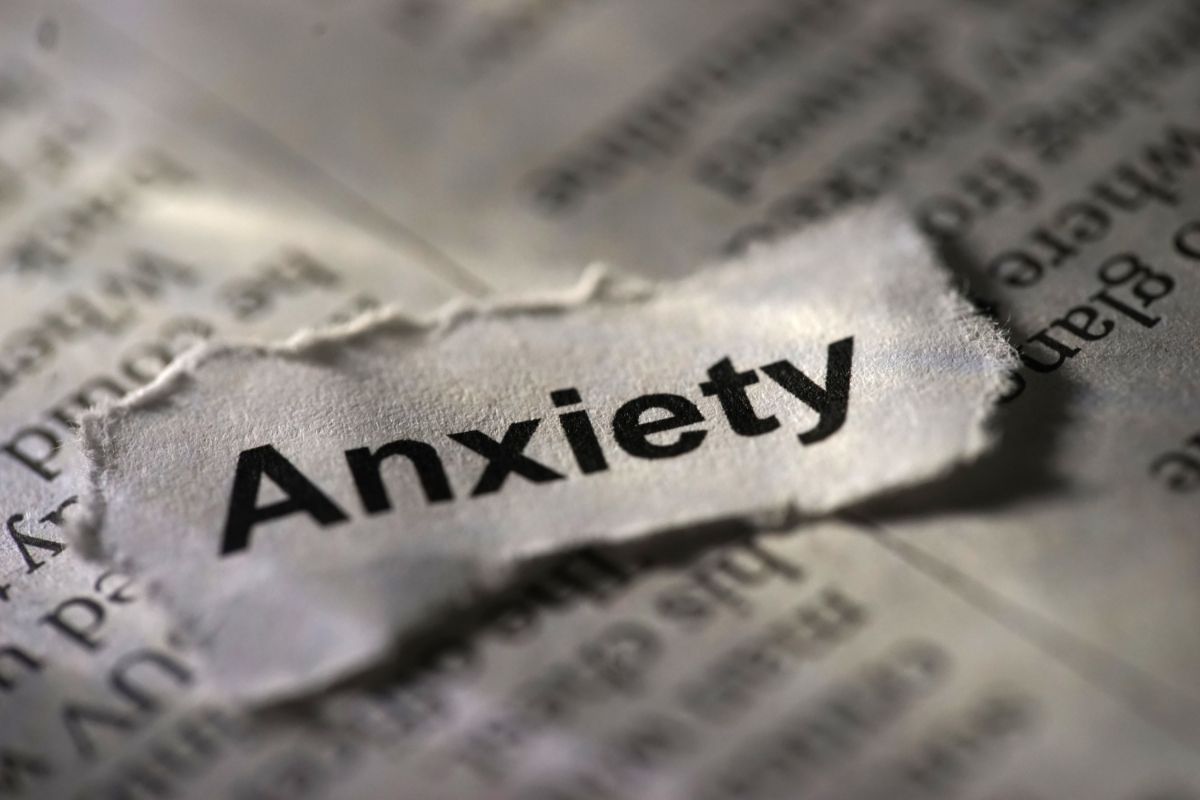How To Explain Anxiety To Someone

Explaining anxiety to someone is like trying to describe the taste of water.
It’s something we all experience, but it’s tricky to put into words.
Anxiety is that jittery feeling you get before a big test, or the butterflies in your tummy when you’re about to give a speech.
But for some folks, it’s like having those feelings cranked up to eleven, all day, every day.
This guide is your secret decoder ring for anxiety.
You’ll learn how to explain those jumbled-up feelings in a way that makes sense.
It’s like learning a new language – the language of your emotions!
Buckle up, buttercup!
We’re about to dive deep into the world of worry.
By the end, you’ll be a pro at translating your anxiety into words anyone can understand.
This guide is perfect for anyone who’s ever felt like their brain was a hamster on a wheel, running a million miles an hour.
It’s for those who want to help their friends and family understand what’s going on in their heads.
So why keep reading?
Because understanding anxiety is the first step to taming it.
And being able to explain it to others?
That’s like having a superpower.
Anxiety: The Uninvited Guest in Your Brain
Anxiety is like that annoying party crasher who shows up uninvited and refuses to leave.
It can pop in for a quick visit or set up camp in your brain for the long haul.
There are different flavors of anxiety, just like ice cream.
Some are mild, like a gentle brain freeze, while others are intense, like a triple scoop of worry with extra sprinkles of panic.
Anxiety can sneak up on you like a ninja.
One minute you’re fine, the next you’re freaking out about something that happened last week or might happen next year.
When anxiety strikes, it’s like your brain turns into a blender, mixing up all your thoughts and feelings until nothing makes sense.
That’s why it can be harder to explain than a cat’s mood swings.
But don’t worry – we’re about to break it down so you can share your experience like a pro.
The Anxiety Cocktail: What’s in the Mix?
Anxiety isn’t just one thing – it’s a whole cocktail of feelings shaken up in your brain.
Let’s break down the ingredients:
Fear: The Main Ingredient
Fear is the star of the anxiety show.
It’s like your brain’s security system gone haywire, seeing threats everywhere.
Sometimes it’s about stuff that might happen, like bombing a job interview.
Other times, it’s about things that already happened, like that time you called your teacher “Mom” in front of the whole class.
The “Not Good Enough” Flavor
Anxiety often comes with a hefty side of self-doubt.
It’s like having a mean little critic living in your head, always pointing out what could go wrong.
You might feel like you’re not smart enough, cool enough, or just plain not enough to handle what’s coming.
It’s exhausting, like trying to climb a mountain while carrying a backpack full of rocks.
Brain Overload
Imagine your brain is a computer with too many tabs open.
That’s what anxiety feels like – everything’s running slow, nothing’s working right, and you just want to hit the reset button.
All those worries and fears crowd your mind, making it hard to think straight.
It’s like trying to have a conversation in a room full of people all talking at once.
The Body Rebellion
Anxiety isn’t just in your head – it throws a party in your body too.
Here’s what that might feel like:
– Your heart races like it’s running a marathon
– Your ears might start ringing like you’re at a rock concert
– Your head pounds like there’s a tiny drummer inside
– Your hands shake like you’ve had way too much coffee
It’s like your body’s playing a practical joke on you, but it’s not funny at all.
When Anxiety Takes Over Your Life
Sometimes, anxiety isn’t just a visitor – it moves in and starts rearranging the furniture in your life.
Here’s how it might redecorate:
– Your brain feels foggy, like you’re trying to think through cotton candy
– Getting stuff done feels like pushing a boulder uphill
– Sleep becomes your arch-nemesis
– Your patience wears thinner than paper
– Food loses its appeal
– You start doing things without thinking, like a robot on autopilot
– Being around people feels as comfy as wearing a porcupine sweater
– The blues move in and refuse to leave
Calling for Backup: Getting Help with Anxiety
Here’s a secret: anxiety is as common as bad hair days.
You’re not alone in this, no way, no how.
Talking about anxiety is like letting air out of a balloon – it helps relieve the pressure.
Plus, it’s the first step to getting better.
You can chat with a friend, family member, or even a professional brain coach (that’s what I call therapists).
There are also secret agent-style helplines where you can spill your guts anonymously.
Remember, asking for help isn’t waving a white flag – it’s more like calling in the cavalry.
It takes guts to admit you need backup, and that’s pretty darn cool.
Wrapping It Up: Your Anxiety Decoder Ring
Anxiety is like a wild animal – hard to pin down and describe.
But now you’ve got the tools to tame it with words.
Whether anxiety is a frequent flyer in your brain or just drops by for surprise visits, this guide should help you make sense of it.
And more importantly, it’ll help you explain it to others when you need a hand.
So here’s the takeaway: don’t wrestle with anxiety alone.
It’s more common than you think, and there are tons of ways to get help.
Talk to a friend, chat with a pro, or find your tribe online.
Remember, explaining your anxiety is the first step to showing it who’s boss.
You’ve got this!

Author: Michelle Landeros, LMFT
Michelle Landeros is a Licensed Marriage Family Therapist (LMFT). She is passionate about helping individuals, couples and families thrive.









